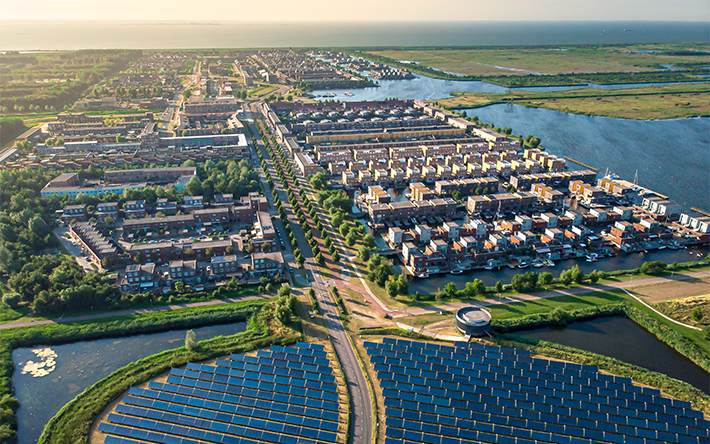
Förderung des sozialen Zusammenhalts und der Konvergenz
Die Förderung des sozialen Zusammenhalts und der Konvergenz ist einer der sechs wichtigsten Tätigkeitsbereiche im Arbeitsprogramm von Eurofound für den Zeitraum 2021–2024. Eurofound wird auch weiterhin als Kompetenzzentrum für die Überwachung und Analyse der wichtigsten Trends und Bestimmungsfaktoren für die Erzielung von Aufwärtskonvergenz bei den Lebens- und Arbeitsbedingungen und der Stärkung des wirtschaftlichen und sozialen Zusammenhalts in der EU tätig sein. Die COVID-19 -Pandemie ist eine beispiellose Herausforderung für die wirtschaftliche und soziale Widerstandsfähigkeit der EU, denn sie macht deutlich, auf welch tönernen Füßen jeder bereits erzielte Fortschritt bei den Konvergenzmustern steht.
In den kommenden vier Jahren wird Eurofound wichtige Erkenntnisse zu den Herausforderungen und Aussichten in den Bereichen sozialer Zusammenhalt und Konvergenz in der EU bereitstellen, die dazu beitragen, dass die Volkswirtschaften und Gesellschaften in der EU widerstandsfähig gegenüber zukünftigen Erschütterungen sind. Die Agentur wird ihre Arbeit der vorangegangenen Jahre zum Thema Aufwärtskonvergenz ausbauen und dabei einen besonderen Schwerpunkt auf den potenziellen Anstieg neuer Ungleichheiten unter den Bürgern sowie auf die Frage legen, wie den krisenbedingten zunehmenden Herausforderungen für den sozialen Zusammenhalt begegnet werden kann. Die Agentur wird regelmäßig über Aufwärtskonvergenztrends bei der sozioökonomischen Dimension sowie den in der Europäischen Säule sozialer Rechte genannten Dimensionen auf Ebene der Mitgliedstaaten und regionaler Ebene berichten und dabei die EU auch mit anderen Industrieländern vergleichen.
Bei der Untersuchung der Triebkräfte und Folgen der wirtschaftlichen und sozialen Konvergenz wird Eurofound eine Reihe von Faktoren berücksichtigen: soziale Investitionen, Mobilitäts- und institutionelle Rahmen, Regulierung, Wohlfahrtssysteme, Qualität von Institutionen und öffentliche Dienstleistungen , sozialer Dialog und Strukturreformen. Dabei wird untersucht, wie wirksam die EU im Hinblick auf die wirtschaftliche und soziale Konvergenz auf die Pandemie reagiert hat. Außerdem wird die Situation im Euro-Währungsgebiet beleuchtet, und es wird ein besonderer Schwerpunkt auf die Frage gelegt, welche Rolle die Arbeitsbeziehungen bei der Beeinflussung der Konvergenz spielen.
Eurofound wird die Trends und Triebkräfte des sozialen Zusammenhalts in der Europäischen Union und insbesondere die Frage untersuchen, wie die COVID-19-Pandemie die bereits vorhandenen Ungleichheiten verschärft bzw. neue Ungleichheiten ausgelöst hat, die die Gesellschaft im weiteren Sinne oder bestimmte Gruppen von Bürgern betreffen. Bei der Analyse stehen wirtschaftliche, soziale und gesundheitliche Unterschiede sowohl auf dem Arbeitsmarkt als auch im Hinblick auf den Zugang und die Qualität unverzichtbarer Waren und Dienstleistungen wie medizinische Versorgung , Wohnen, Bildung und Sozialschutz im Vordergrund. Dabei wird der Zusammenhang zwischen Ungleichheiten, Vertrauen in Institutionen und Unzufriedenheit untersucht. Weitere interessante Themengebiete sind u. a. Migration , Integration und gesellschaftliche Spannungen.
Die sich aus dieser Tätigkeit ergebenden Forschungsergebnisse werden in die Arbeit der verschiedenen Dienststellen der Europäischen Kommission und des Beschäftigungsausschusses (EMCO), des Ausschusses für Sozialschutz (SPC), des Wirtschafts- und Finanzausschusses (WFA), des Rates und des Europäischen Parlaments, einschließlich in Bezug auf das Europäische Semester, einfließen.

























